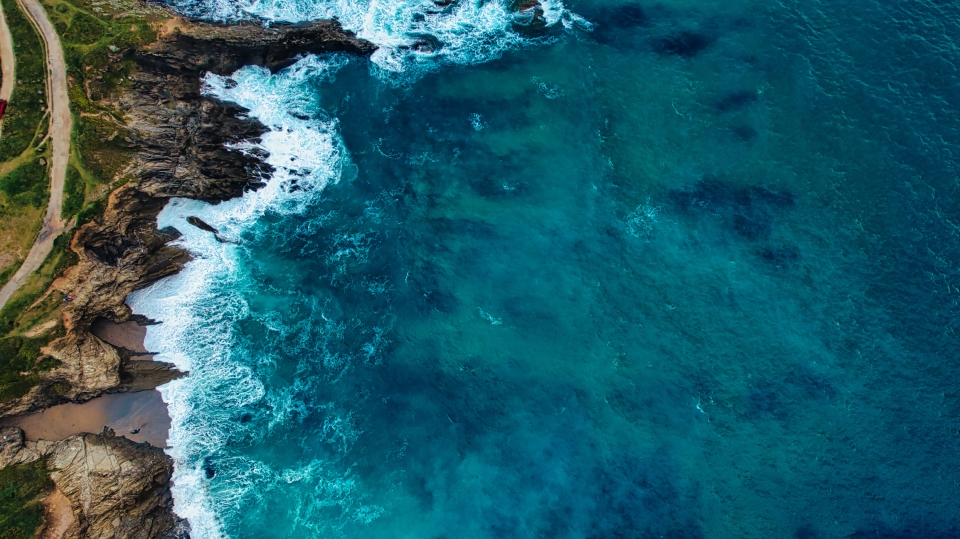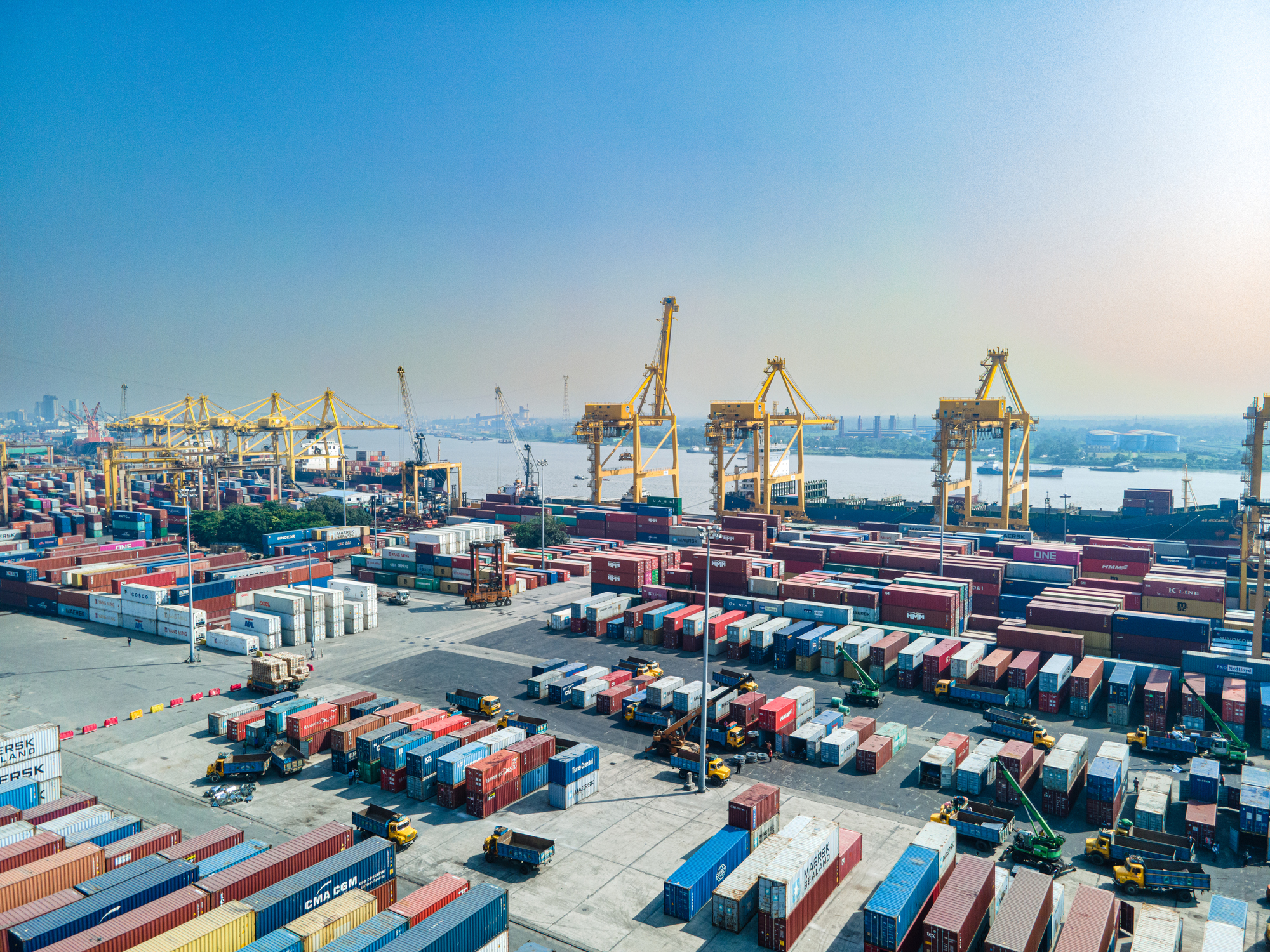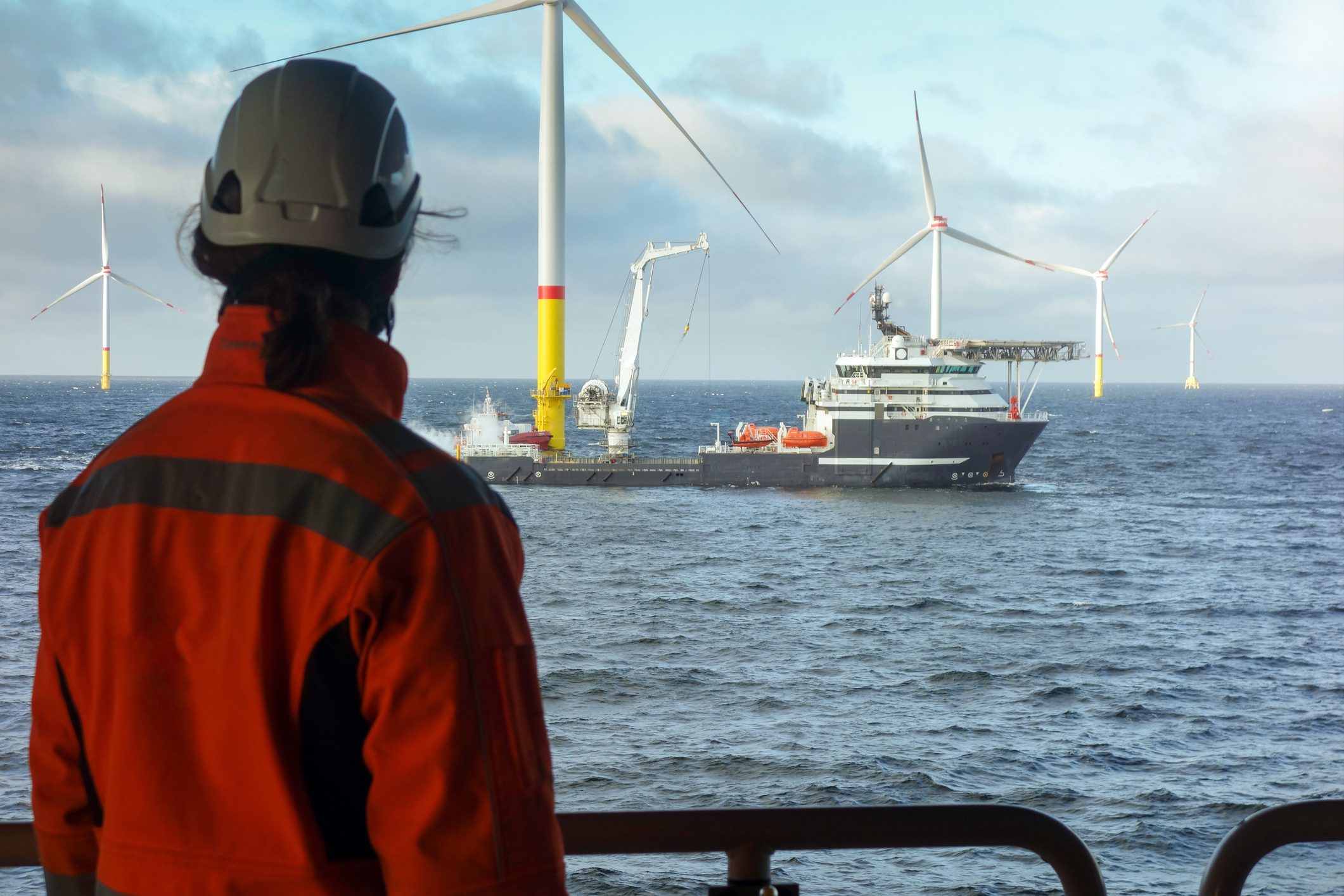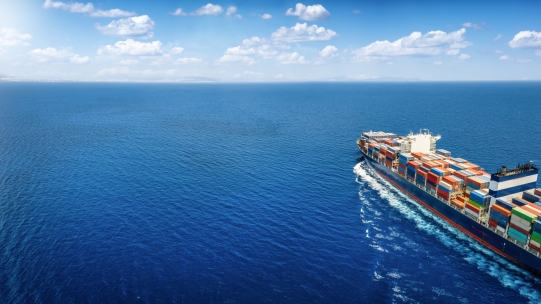Making waves across the tides: Navigating the ocean through the lens of sustainability
Read more

A healthy and productive ocean is essential to all life on Earth. From the production of food to the provision of energy, the ocean holds critically important solutions to help fight ongoing climate change, biodiversity loss, health and poverty crises. A resilient ocean that is protected and well managed is the basis for a thriving, sustainable ocean economy that provides new employment opportunities and economic benefits.
Today, the ocean is reaching a breaking point. Once a powerful buffer against climate change, it absorbs carbon at an unsustainable rate, pushing us dangerously close to breaching a seventh planetary boundary — ocean acidification. This creeping crisis threatens marine life, disrupts climate stability and endangers billions of people who depend on the sea. The science is clear: without urgent intervention, we risk not only the health of our ocean but the prosperity of future generations.

Vincent Doumeizel, author of The Seaweed Revolution and Senior Advisor on Oceans at the UN Global Compact, emphasizes that when it comes to our oceans, humanity’s understanding remains largely surface-level. The ocean's vastness, its remoteness and harsh conditions, our own technological limitations and the high cost of research have all made it challenging to map and understand the world’s oceans in detail. As climate change and other related issues continue to transform life today, we must ask ourselves how to overcome these limitations to learn more and ensure a healthier, more sustainable ocean.
The upsides of the untapped underwater
The ocean economy is already equivalent in size to the world's fifth-largest economy, as global markets rely on the ocean to support 90 per cent of global freight volume. The ocean economy is becoming increasingly central to global transitions in trade, infrastructure, energy, climate resilience, food security and regenerative tourism. A strong and innovative Sustainable Ocean Economy will be necessary to support the transition to green economies as demand increases for decarbonized shipping, green port infrastructure, offshore renewable energy and sustainable food systems.

Unlocking these resources will require investment in research and development, renewed faith in multilateralism and a commitment to creating a sustainable future for all.
Sustainable collaborations for advancements
The UN Global Compact actively promotes the sustainable use of ocean resources through various initiatives, partnerships and frameworks. The organization aims to align ocean-related business activities with sustainability principles, emphasizing environmental stewardship, responsible resource management and ecosystem protection. The UN Global Compact helps businesses to stay ahead of the curve through actionable frameworks and investment tools designed to turn sustainability into strategy, not just compliance. These initiatives include:
The Sustainable Ocean Principles and Sustainable Development Goal (SDG) 14
These principles guide businesses to operate responsibly and ethically within ocean industries, promoting actions such as reducing plastic pollution, investing in renewable marine energy and adopting sustainable fishing practices. SDG 14, Life Below Water, focuses on conserving and sustainably using the oceans, seas and marine resources for development by reducing plastic waste in supply chains, investing in offshore renewable energy and supporting traceable, sustainable seafood sourcing.
Set to be unveiled during the 2025 United Nations Ocean Conference (UNOC25), the Ocean Investment Protocol is a framework for financial institutions, (re)insurers, ocean industries, governments and development finance institutions (DFIs) to lead the growth of the Sustainable Ocean Economy (or SOE) to achieve SDG14 and other related SDGs. The Protocol serves as a roadmap for these stakeholders to unlock and scale up private capital to collectively lead the growth of the SOE
Bonds to Finance the Sustainable Blue Economy: A Practitioner's Guide
Blue bonds are an innovative type of sustainability bond, serving as debt instruments to fund investments in healthy oceans and blue economy industries such as aquaculture, offshore renewables and decarbonized shipping. Bonds to Finance the Sustainable Blue Economy: A Practitioner’s Guide provides market participants with a comprehensive framework for issuing bonds, including clear criteria, practices and examples for "blue bond" lending and issuances. It covers key steps in the bond issuance process, helping stakeholders like financial institutions and private sector actors build credibility and attract responsible investment.
Building on progress made during the Indonesian, Indian and Brazilian G20 presidencies, the Ocean 20 is a civil society track that provides insights and actionable policy recommendations for the G20 Summit meetings on ocean-related issues for offshore energy, aquatic food systems, shipping, blue finance, marine nature-based solutions (NbS) and ocean governance. In 2025, the Ocean 20 agenda is supported by the South African Presidency. The ocean is at the center of global transitions in trade, energy and food and offers critical solutions to energy, trade and food security challenges. The insights of the ocean industry, the finance community and the scientific community have never been more relevant.
Ocean Centres
In partnership with the Lloyd’s Register Foundation, the UN Global Compact has launched the Ocean Centres initiative which will build the capacity of 7 UNGC country networks (India, Bangladesh, Kenya, Philippines, Brazil, Indonesia and Ghana) to implement a model of locally-led, multi-stakeholder platforms powered by the local expertise of ocean stakeholders and safety experts to create evidence of local needs, seed local safety leadership, identify solutions and influence national and international standards and regulations.
The Centres will support companies and governments in seven less developed countries in identifying and addressing safety challenges involved in growing sustainable blue economies. Addressing these challenges requires focusing on skills and standards, both in relation to infrastructure and policy surrounding ocean industries.
Why this matters for your business
- Access to capital: Investors are looking for ocean-positive projects.
- Risk management: Climate risks and ocean degradation directly affect coastal infrastructure, supply chains and food systems.
- Brand & trust: Consumers increasingly reward companies with credible sustainability commitments.
Partnerships and coalitions
The UN Global Compact ensures that businesses act as part of the global solution to ocean sustainability, encouraging innovation, transparency and cooperation. Several important bodies and organizations work alongside the UN Global Compact to drive ocean sustainability. These include:
The International Maritime Organization (IMO)
The IMO plays a central role in regulating international shipping to reduce its environmental footprint through the introduction of more stringent emissions standards, safe disposal of waste and efforts to prevent marine pollution.
The Maritime Just Transition Task Force
Initiated during COP 26 in Glasgow by the International Chamber of Shipping (ICS), the International Labour Organization (ILO), the International Maritime Organization (IMO), the International Transport Workers’ Federation (ITF) and the United Nations Global Compact, the ‘Maritime Just Transition Task Force’ ensures that the shipping industry’s response to the climate emergency puts seafarers at the heart of the solution, supported by globally established Just Transition principles. It is the first global sectoral task force dedicated to a ‘just transition’, seeking to coordinate and strengthen collaboration between governments, industry, workers and academia and their representatives towards a safe, equitable and human-centred transition towards a decarbonized shipping industry.
The International Seabed Authority (ISA)
The ISA governs mineral exploration in areas of the seabed beyond national jurisdiction. Its role in promoting responsible and sustainable seabed mining is crucial for balancing resource extraction with environmental protection.
The Intergovernmental Oceanographic Commission (IOC)
The IOC coordinates international efforts to advance ocean science and facilitate the exchange of ocean data, supporting initiatives such as the Ocean Decade and the Global Ocean Observing System.
These organizations, along with the UN Global Compact, create a global network working toward sustainable ocean governance and resource management, fostering collaboration across industries and borders.
Conclusion
A strong and innovative sustainable ocean economy offers immense potential for economic prosperity, climate mitigation and biodiversity conservation. However, unlocking this potential requires an ambitious and systemic transformation of our relationship with the ocean. It is clear that we cannot solve these challenges without broad multi-stakeholder partnerships. For nearly 25 years, the UN Global Compact has worked to build bridges between industry leaders, governments, NGOs and the UN. We know that this type of collaboration can spur an ‘ambition loop,’ in which bold government policies and private sector leadership reinforce each other to push action to the next level. We continue to work with these industry leaders to identify best practices, push them forward as industry standards and to promote them into policy and regulation. Understanding how to operationalize the ocean with a sustainability lens has set the tone for global regulations in a time when we need more collaboration. Now is the time for businesses and nations alike to take decisive action to safeguard the future of our oceans.


